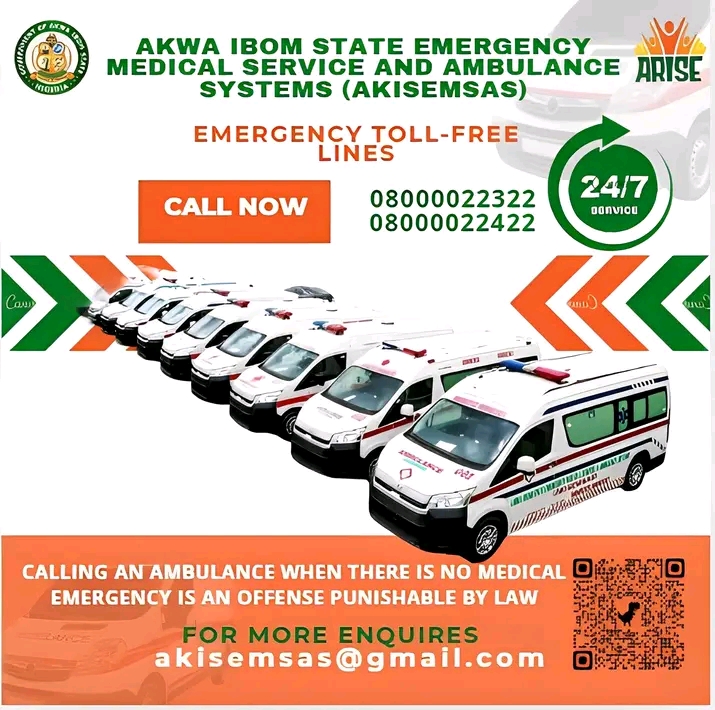It was around 1:00 AM in Uyo, the Akwa Ibom State capital. Yours truly was returning home from a trip to a nearby state.
Somewhere on the Udo Udoma dual carriageway, a Toyota Camry, speeding like a Formula One Championship car, somersaulted before kissing the concrete divider. Inside the vehicle were three lads: two of them were in very critical condition and were bleeding profusely, while one only sustained bruises.
Within seven minutes of a distress call (yes, I timed it!), an ambulance arrived—its siren shattering the stillness of the night. Paramedics, looking like superheroes in their uniforms, jumped off the vehicle with a stretcher and other kits.
Today, I can authoritatively announce that those lads are alive and kicking. They are security operatives, hence my decision to conceal their identities in this write-up.
The Nigerian state has never been famous for its swiftness—except, perhaps, in the speed with which our leaders move their personal interests forward. We have seen accident victims writhe on highways while passersby film their agony on phones. We have watched pregnant women bleed out in rickety buses, markets, and homes because no ambulance would come. We have normalized the absurd—expecting the dying to find their own way to the hospital.
But in Akwa Ibom, something unusual is happening. The government has chosen to run where others crawl, to act where others merely lament. The Akwa Ibom State Emergency Medical Service and Ambulance System (AKISEMSAS) is not just a policy; it is a quiet rebellion against the I-don’t-care syndrome.
28 ambulances now patrol the state, ready to answer two simple, toll-free numbers: 080-0002-2322 and 080-0002-2422. No long talk. Just a dial, and they come to your rescue—on the road, at home, in the office, at school, everywhere.
There is a temptation—one we know too well—to turn public services into personal privileges. Some will demand them for personal use or for political purposes.
Will these ambulances remain fueled, functional, and free from the greasy fingers of political contractors? Will the paramedics be paid, or will they abandon their posts like doctors in other states?
Well, the Commissioner for Health, Dr. Ekem Emmanuel, allayed such fears during the unveiling of the center in Uyo. He promised that his Ministry would never gamble with lives.
His words: “All the 28 ambulances are tracked from the call center, so it means none of the drivers can leave this facility without approval. This center will not fail Akwa Ibom State.”
Yes, emergency medical response is not rocket science; it is actually the right of every citizen. But has any Nigerian governor in states where such doesn’t exist been stoned or impeached? It is a matter of will. If a state can do this, what excuse do others have? A society is judged not by the wealth of its rulers but by how it treats its most vulnerable. If a man collapses on the street, does help arrive in time? Or do people simply step over him?
Akwa Ibom has made its choice.
The initiative however demands responsible utilization of its emergency lines. Frivolous calls will delay responses to genuine emergencies and putting lives at risk. Misuse of emergency services attracts legal sanctions. The stakes are too high for frivolity, please.
One more thing: Yours truly appeals to the state government to add more ambulances to the existing ones and also establish three or four more of such centers across the state.







